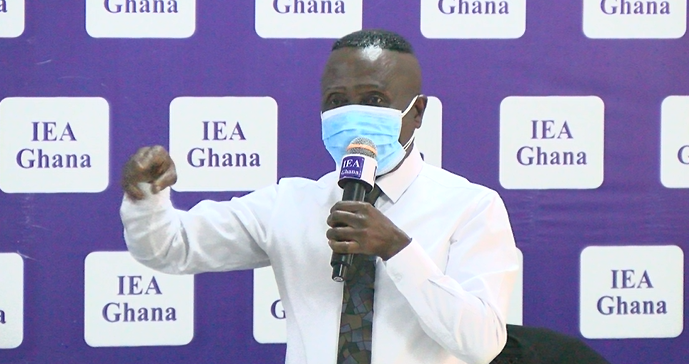The Institute of Economic Affairs (IEA) has urged the Monetary Policy Committee (MPC) of the Bank of Ghana (BoG) to raise the policy rate by another 100-150 basis points in its upcoming 107th Meetings.
According to the IEA, the adjustment is necessary to fight inflation and also send the right signals to investors, explaining that the Committee would have had the benefit of two more inflation readings in July and August, that would give it a clearer sense of the trend for it to reposition the Policy Rate (PR) accordingly, in the next meetings of the MPC in September.
“…We are minded to suggest that the MPC should increase the PR by further 100-150 basis points, taking it to 20.0-20.5%. This adjustment will narrow the inflation-PR gap, although the real PR will still remain negative. Further, the adjustment will signal the MPC’s unwavering commitment to fighting the inflation and bring it under control. The adjustment will also send the right signal to, and help calm, the markets”.
Policy rate
The IEA outlined several factors that informed its decision to call for a further increase in the policy rate which currently stands at 19.0%.
Taking growth first, the IEA noted that the Ghana Statistical Service (GSS) reported a year-on-year growth rate of 3.3% for Q1, 2022 which is a sign that the economy is recovering, albeit slowly, from the pandemic.
The IEA highlighted that the Ghanaian economy has the potential to grow at higher rates, if only the right policies backed by adequate resources, especially what can be mobilized from domestic sources, would be implemented. That said, relatively, growth is not an immediate serious risk factor, it noted.
Instead, the IEA stated that inflation is of a major concern and poses a greater risk, especially as the outlook of Covid-19 and the Russia-Ukraine war, key drivers of current global inflation, remain uncertain, while economic hardship has also heightened.
Based on that, the IEA indicated that the Committee faces a challenging decision as inflation shot up further to 29.6% in June, the highest in eighteen years. In the past year, the MPC has acted aggressively to stem the soaring inflation by raising the PR cumulatively by as much as 550 basis point to 19.0%, the last increase being 200 basis points in May.
The strong policy tightening, however, has not succeeded in bringing the situation under control, the IEA noted. Detailing the factors that should aid the MPC in deciding how to position the PR, the IEA noted that the last time in the past year that the PR (then at 14.5%) was higher than the inflation rate (then at 13.9%) was in January 2022.
“We have picked a signal from the IMF mission that visited Ghana recently to discuss a financial programme with Ghana to the effect that they would assist Bank of Ghana ‘to further strengthen the monetary policy regime’ in response to the raging inflation. Per the IMF’s traditions, it would appear to us that they imply encouraging further tightening of monetary policy” IEA further indicated.
Previous Policy Tightening
The IEA also noted that the strong policy tightening carried out by the MPC recently may not have exerted its full effect yet, given the impact-lag involved.
The IEA lamented that “an important factor that is not readily available to us is the exact relationship between PR adjustments and inflation. In other words, when the PR is increased by one percentage point, by how much does inflation decrease? Also what is the lag between the change in the PR and the effect on inflation?”
Furthermore, the IEA indicated that it would appear that though inflation has risen consistently in the past year, the rate of increase in recent months, being 4.2, 4.0 and 2.0 percentage points respectively in April, May and June, shows a decelerating trend.


Comments are closed.